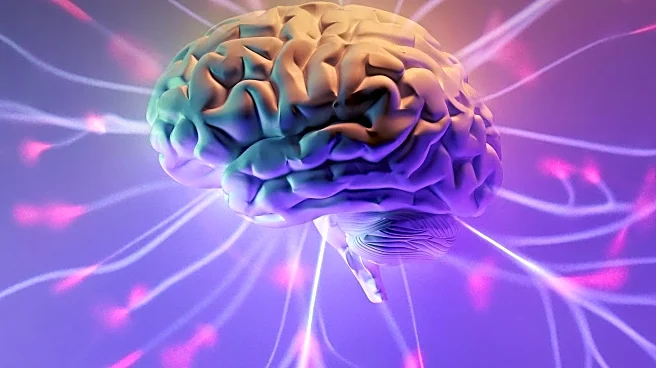What is the story about?
What's Happening?
Researchers at the University of Bath have developed a brainwave test called Fastball EEG, capable of detecting memory impairment linked to Alzheimer's disease years before symptoms appear. The test, which records electrical activity in the brain while participants view images, has shown reliability in identifying memory problems in people with Mild Cognitive Impairment (MCI). The study, published in Brain Communications, demonstrates that the test can be administered at home, potentially enabling wider screening and monitoring. This development is crucial as early diagnosis is vital for the effectiveness of breakthrough Alzheimer's drugs like donanemab and lecanemab.
Why It's Important?
The Fastball EEG test represents a significant advancement in Alzheimer's research, offering a practical and accessible tool for early diagnosis. Early detection is crucial for the timely administration of new Alzheimer's treatments, which are most effective in the disease's early stages. This test could revolutionize how Alzheimer's is diagnosed, potentially reducing the number of undiagnosed cases and improving patient outcomes. The ability to conduct the test at home also increases accessibility, particularly for those unable to visit clinical settings.
What's Next?
The research team plans to scale the Fastball EEG test for use in GP surgeries, memory clinics, and home settings, facilitating earlier and more accurate diagnoses. Continued support from dementia research charities like BRACE will be essential for further development and implementation. As the test becomes more widely available, it could significantly impact Alzheimer's treatment strategies, improving early intervention and patient care.
















